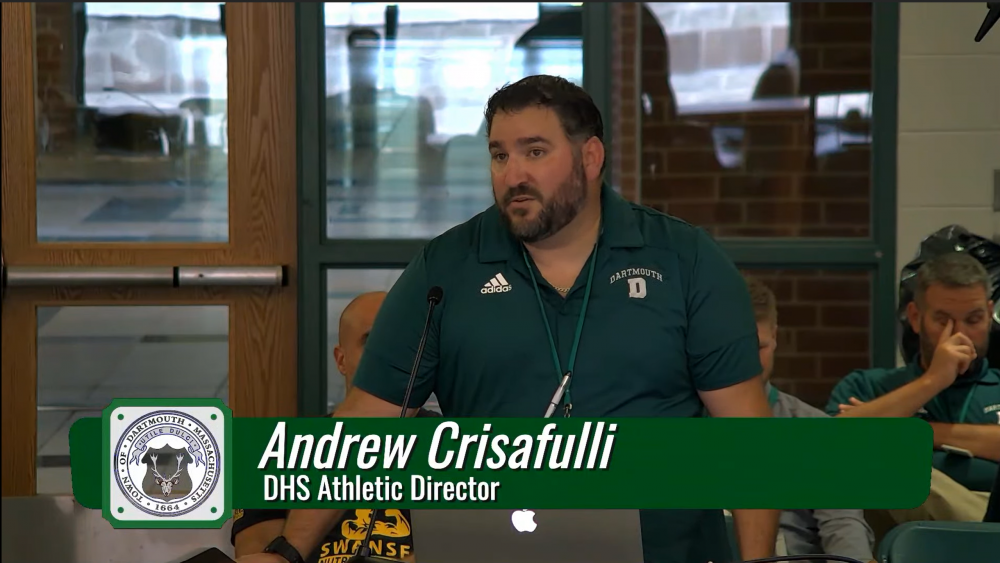School Committee approves new athletics handbook, cell phone policy
The Dartmouth School Committee approved changes to the high school’s handbook at its Aug. 22 meeting, putting into effect updates to the cell phone policy and instituting a brand new athletics handbook.
The athletics handbook has been a priority for Athletics Director Andrew Crisafulli since he joined the school in 2019.
He said the handbook is designed to cover everything students and parents might need to know when participating in a school sports program, from academic eligibility to social media guidelines.
School committee members, who reviewed the handbook in its entirety, thanked Crisafulli for his work and complemented its thoroughness, with member Kathleen Amaral calling it “very comprehensive.”
The only major change to the high school’s academic handbook was the updated cell phone policy
The change was introduced by Dartmouth High Principal Ryan Shea at the committee’s July 25 meeting, but was not officially approved until now.
The policy, which used to leave most of the control over cell phone use up to individual teachers, will now include better defined rules to ensure consistency across classrooms.
Under the new guidelines, each classroom will be equipped with a “phone hotel” where all students’ phones and wireless headphones will be stored during the class.
Shea said that the phone hotels were a compromise between forcing students to leave the phones in their lockers all day, which was considered “too extreme,” and the old policy which allowed them to be carried freely.
The compromise has the benefit of allowing students to access their devices if they need to use them for legitimate educational purposes — like taking a photo during a science lab — or in case of an emergency.
He added that the new policy will align the high school more closely with other Dartmouth Public Schools, where phones are required to be left in students’ lockers during class periods.
“We don’t want [students] taking their eyes off their learning,” he said at the July meeting. “Because every time we get a text, or every time we get an alert, or every time we get a buzz, our eyes go off our learning and we miss a part of the lesson and then we come back.”












